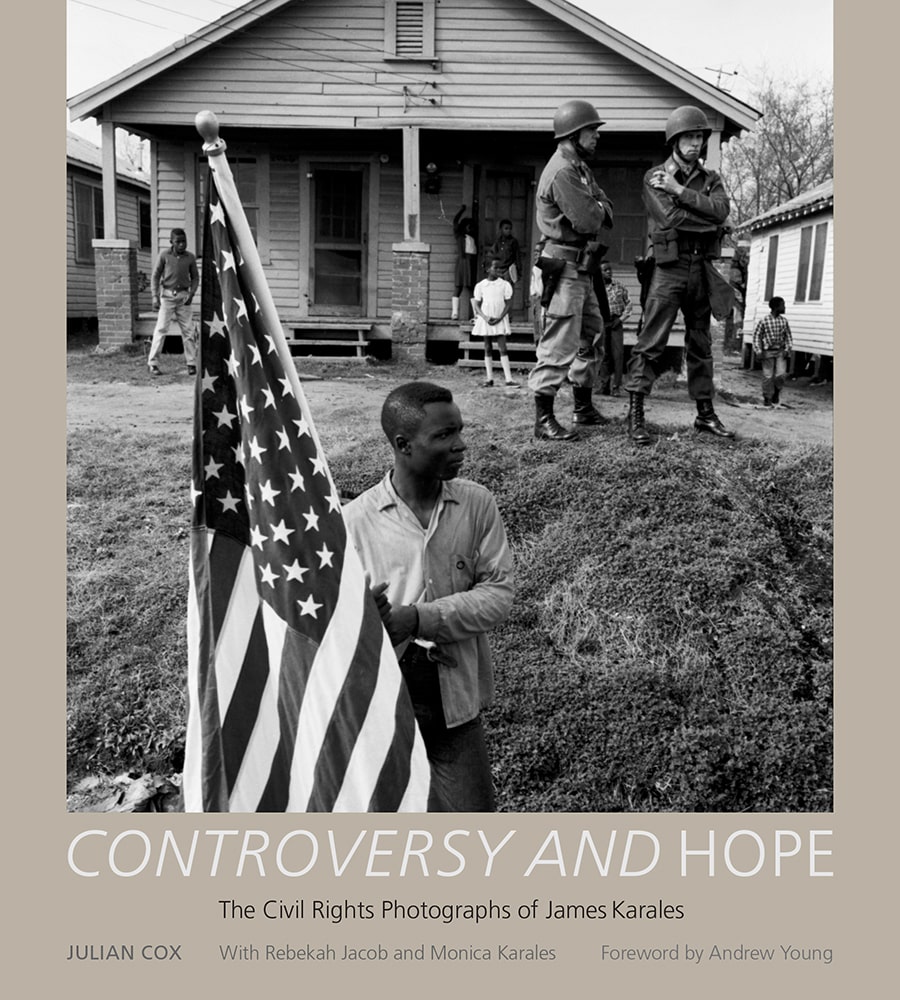Black History Month Sale: 40% off all books, plus FREE SHIPPING on all U.S. orders over $50 | Use code JBHM26

Size: 8.75 x 10.00
Pages: 125
Illustrations: 130 b&w halftones
Julian Cox
The inclusion of this book in the Open Carolina collection is made possible by the generous funding of
"What makes Karales's photos stand out is his ability to find the emotional core and humanity in the images, whether they are of seemingly ordinary activities, of tense moments fraught with danger, or of famous figures such as Dr. Martin Luther King Jr. and his family, to whom Karales had unparalleled access as a photographer. Cox provides a thorough chronicle of Karales's personal life, education, career, and involvement in the civil rights movement. The text is followed by 92 of his photographs, most from the march to Montgomery, that record a crucial period in the civil rights movement. Recommended for anyone interested in photojournalism and modern American history."—Library Journal
"The photographs in this book tell a story of life in the impoverished south and the behind the scenes of the civil rights movement more than it talks about the actual civil rights protests and marches."—Cathy Ikeda, NetGalley
"His most famous shots retain their potency: a line of marchers below a gathering storm cloud; a man partially shaded by the U.S. flag that drapes him; a white amputee crutching the route with determination. There is a remarkable intimacy and spontaneity to Karales's photographs."—Publishers Weekly, April 2013
"The visually powerful images in Controversy and Hope reveal a formerly unseen glimpse into the 1965 Selma to Montgomery March for Voting Rights, Dr. Martin Luther King, Jr., and other civil rights events like no other book I have read. Although our paths never crossed, James Karales' insider access and composition—much like my own—captures many crucial moments of social change with artistic flair and sensitivity."—Cecil Williams, author of Orangeburg 1968: A Place and Time Remembered, Out-of-the-Box in Dixie: Cecil William's Photography of the South Carolina Events that Changed America, and Unforgettable: All the Memories We Left Behind
"These photographs by James Karales evoke the power of Walker Evans. Here are rare discoveries mixed with iconic images of U.S. history. Karales was a master. No artist captured more drama, character, and inspiration from the civil rights era."—Taylor Branch, author of Parting the Waters and The King Years
"Ultimately, Controversy and Hope invites current and future scholars to further investigate Karales and the movement, to help answer lingering questions about why Karales's photographs were seldom exhibited."—Kera Lovell, H-Net Reviews
"I don't know why James Karales had the sensitivity to capture the power and the humanity of our movement. Perhaps it was a sensibility derived from his life as the child of immigrants. Perhaps it was his immersion in the integrated coal-mining community of Rendville, Ohio. Somehow he was not blinded by the color consciousness that was the hallmark of the segregated way of life we were challenging. Through the lens of his camera, Karales recorded the humanity of a people struggling to be free and conveyed that reality to the nation."—Andrew Young, from the foreword
Copyright 2026
Website By Morweb.org